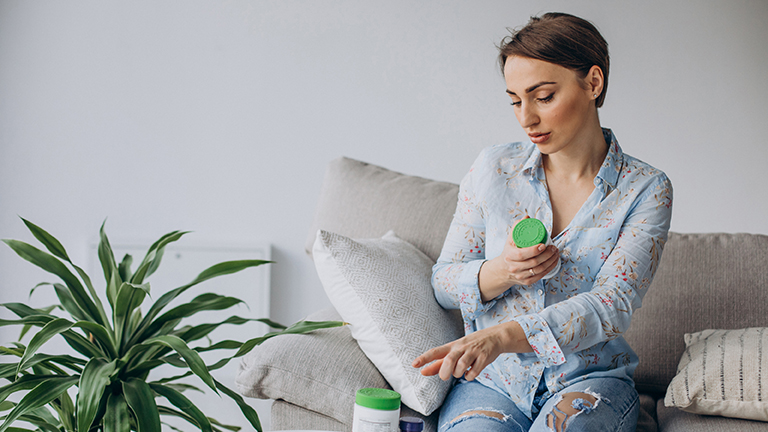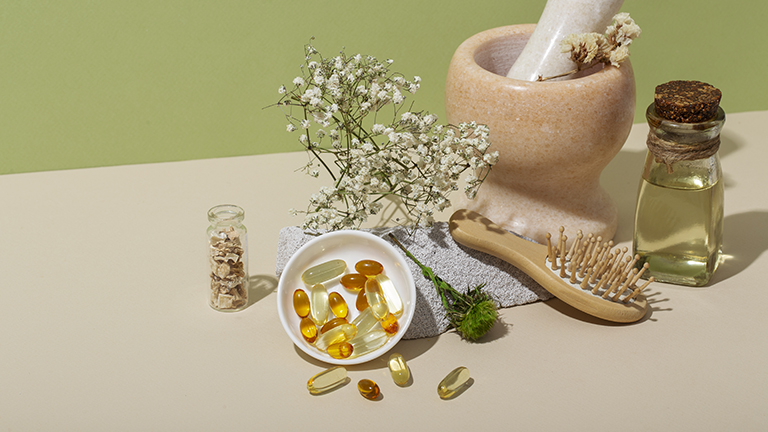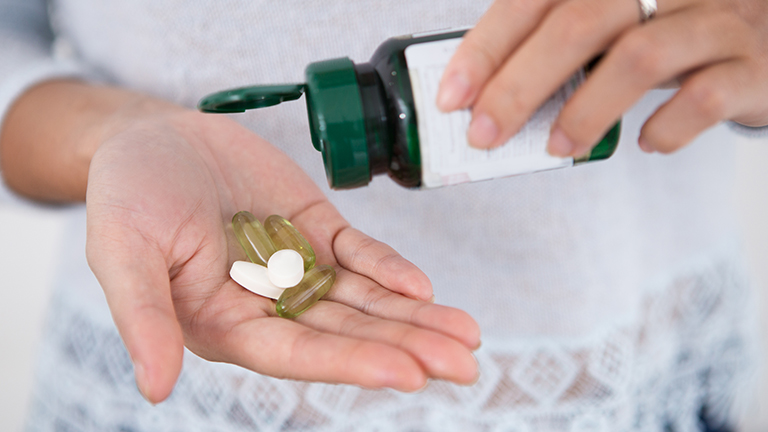Anxiety has become one of the most common mental health challenges in today’s fast-paced world. Millions of people experience constant stress, restlessness, or nervousness that affects both mental and physical well-being. While conventional medications like antidepressants and anti-anxiety drugs are widely prescribed, many individuals are turning toward more natural approaches. This is where anti anxiety herbal supplements step in, offering a holistic and plant-based way to reduce stress and promote relaxation without the harsh side effects of pharmaceuticals.
The demand for natural remedies for anxiety continues to rise, with herbal solutions being recognised across cultures for centuries. From ancient Ayurvedic practices using ashwagandha to the soothing effects of chamomile tea, herbal medicine has been a trusted tool for restoring calmness and balance. But how effective are these remedies really, and what does science say about them? This comprehensive guide explores the best anti anxiety herbal supplements, their benefits, research evidence, and practical tips for safe use.
What Are Anti Anxiety Herbal Supplements?
Anti anxiety herbal supplements are natural products derived from plants and herbs that aim to reduce stress, anxiety, and nervousness. These remedies are often available in the form of capsules, powders, tinctures, teas, or essential oils. Unlike prescription medication, herbal remedies are usually considered gentler on the body and can be incorporated into daily wellness routines.
Herbal supplements for stress relief work through various mechanisms such as regulating cortisol levels, enhancing neurotransmitter function, and promoting relaxation of the nervous system. Some herbs act as adaptogens, helping the body cope with stress more effectively, while others provide sedative or calming effects.
How Do Herbal Supplements Work in Anxiety Relief?
The human body responds to anxiety through changes in the brain and nervous system. Neurotransmitters such as serotonin, dopamine, and gamma-aminobutyric acid (GABA) play key roles in mood regulation. Many herbal supplements interact with these neurotransmitters to restore balance. For example, valerian root increases GABA activity, which promotes relaxation, while ashwagandha helps regulate cortisol, the stress hormone.
Additionally, herbal supplements often contain antioxidants and anti-inflammatory compounds that support brain health and protect against the damaging effects of chronic stress. They can also enhance sleep quality, which is crucial since poor sleep is closely linked to anxiety disorders.
Popular Herbal Supplements for Anxiety
Ashwagandha: The Ancient Stress Reliever
Ashwagandha is one of the most popular adaptogenic herbs used in Ayurvedic medicine. It helps the body adapt to stress by balancing cortisol levels and improving resilience. Research shows that ashwagandha supplementation can reduce anxiety symptoms, improve sleep quality, and enhance overall mental well-being. Many people use it as a daily supplement to manage chronic stress and nervousness.
Valerian Root: Natural Sedative for Calmness
Valerian root has long been used as a natural sedative. It promotes relaxation by increasing GABA activity in the brain. This herb is commonly used for sleep disorders, but it also has anxiety-relieving effects. Studies suggest that valerian root may be as effective as some mild anti-anxiety medications, but without the addictive risks.
Chamomile: Gentle Herb for Relaxation
Chamomile is perhaps best known as a calming tea. It contains apigenin, a compound that binds to certain brain receptors to induce relaxation. Chamomile supplements and teas are widely used for mild anxiety, restlessness, and sleep problems. It is one of the safest herbal options, making it suitable for long-term use.
Passionflower: Nature’s Answer to Nervousness
Passionflower is traditionally used to reduce anxiety, promote sleep, and ease restlessness. Research indicates that passionflower extract may be effective for generalized anxiety disorder and can be a good alternative for people who prefer herbal remedies over prescription drugs.
Lavender: Calming Herb with Aromatic Benefits
Lavender is not just an aromatic herb but also a powerful natural remedy for anxiety. Both oral lavender supplements and lavender essential oil have shown effectiveness in reducing symptoms of stress and nervousness. The soothing scent of lavender can activate brain pathways that encourage calmness and relaxation.
Do Herbal Supplements Really Work for Anxiety?
The effectiveness of anti anxiety herbal supplements depends on several factors, including dosage, quality of the product, and individual body chemistry. While herbs cannot completely replace medical treatment for severe anxiety disorders, research indicates that they can significantly improve mild to moderate anxiety symptoms.
For example, clinical trials on ashwagandha have shown reductions in cortisol levels and self-reported anxiety. Similarly, lavender extract has been studied in comparison to prescription anti-anxiety drugs and found to be effective with fewer side effects.
Studies Supporting Herbal Remedies for Stress and Anxiety
Numerous studies have evaluated the benefits of herbal supplements in managing anxiety. A 2019 meta-analysis found that herbal remedies such as passionflower and chamomile showed significant improvements in anxiety symptoms compared to placebo. Another study in the Journal of Alternative and Complementary Medicine highlighted that ashwagandha supplementation resulted in reduced stress scores and better sleep quality.
However, while evidence supports their use, researchers emphasize the importance of high-quality supplements since effectiveness can vary greatly between brands.
Possible Side Effects of Herbal Supplements
Although herbal remedies are natural, they are not free from side effects. Some herbs can cause drowsiness, digestive upset, or allergic reactions. For example, valerian root may cause dizziness or headaches in some users, and chamomile may interact with blood-thinning medications.
It is important to consult with a healthcare provider before starting any herbal supplement, especially for individuals already taking prescription medications. Pregnant and breastfeeding women should also be cautious since not all herbs are considered safe during these times.
Interactions with Medications
One of the biggest concerns with herbal supplements is potential interactions with prescription medications. For example, St. John’s Wort, another herbal option sometimes used for mood disorders, can interfere with antidepressants, birth control pills, and other drugs. Herbs that affect the central nervous system may also enhance the sedative effects of medications, leading to excessive drowsiness.
Who Should Avoid Herbal Anxiety Remedies?
Not everyone is a good candidate for herbal supplements. People with chronic medical conditions such as liver disease, heart problems, or severe mental health disorders should consult a physician before trying any herbal remedy. Children, older adults, and pregnant women require extra caution due to potential risks.
What Experts Say About Herbal Alternatives
Experts in integrative medicine often recommend herbal remedies as complementary treatments rather than replacements for conventional medicine. Dr. Andrew Weil, a pioneer in integrative health, has long emphasized the value of herbs such as ashwagandha and chamomile in supporting emotional well-being. Psychologists also recognize the benefits of incorporating herbal supplements with lifestyle changes such as mindfulness, yoga, and meditation.
Real User Experiences with Herbal Supplements
Many individuals report significant improvements in anxiety symptoms after using herbal remedies. Some describe a noticeable calming effect from lavender oil or passionflower, while others rely on ashwagandha for daily stress management. User reviews highlight that results can vary, and consistency is often key to experiencing long-term benefits.
Choosing the Right Anti Anxiety Herbal Supplement
When selecting an herbal supplement, quality and purity are critical. Look for products that are third-party tested, free from artificial fillers, and standardized to contain effective levels of active ingredients. Organic and non-GMO certifications are also a good sign of product reliability.
Top Rated Herbal Supplements for Anxiety Relief
Some of the most recommended brands include standardized ashwagandha capsules, chamomile teas from trusted herbal companies, valerian root extracts, and lavender essential oils. Online reviews and expert recommendations can help in making informed choices.
Tips for Safe and Effective Use
To get the best results from herbal supplements, it is important to follow recommended dosages and maintain consistency. Combining herbal remedies with stress management practices such as mindfulness, meditation, and regular exercise enhances their effectiveness. A healthy diet rich in antioxidants and omega-3 fatty acids also supports mental wellness.
Diet and Lifestyle Changes Along with Herbal Remedies
While herbs can be powerful, they work best when combined with overall healthy habits. Avoiding processed foods, limiting caffeine, and practicing regular physical activity play a significant role in reducing anxiety. Holistic support ensures that herbal remedies provide long-lasting results.
Combining Herbal Supplements with Mindfulness Practices
Mindfulness meditation, yoga, and deep-breathing exercises can significantly enhance the calming effects of herbs. The integration of mind-body practices with herbal remedies creates a synergistic effect that promotes emotional balance and resilience.
Are Anti Anxiety Herbal Supplements the Right Choice for You?
Herbal remedies for anxiety are not a one-size-fits-all solution, but they can be highly beneficial for individuals seeking natural alternatives to medication. With growing scientific evidence, safe usage guidelines, and centuries of traditional wisdom, these supplements hold an important place in modern mental health support.
For those experiencing mild to moderate anxiety, herbal supplements such as ashwagandha, chamomile, lavender, valerian root, and passionflower can provide safe and effective relief. However, professional guidance is always advised, particularly for individuals with complex health needs.
Dosage Guidelines for Anti Anxiety Herbal Supplements
When using herbal supplements for anxiety, proper dosage is crucial for safety and effectiveness. Unlike prescription medications that come with standardized doses, herbal remedies can vary depending on the form, concentration, and manufacturer. Below are commonly studied dosage ranges for some of the most popular anti anxiety herbal supplements.
Ashwagandha Dosage
Ashwagandha is often available as capsules, powders, or tinctures. Clinical studies typically use doses ranging from 300 to 600 mg of standardized root extract daily. Lower doses may be effective for mild stress, while higher doses are used in clinical trials for reducing cortisol and anxiety symptoms. The root powder can also be consumed by mixing one to two teaspoons in warm milk or water before bedtime.
Valerian Root Dosage
Valerian root is commonly used in doses of 300 to 600 mg daily, often taken in capsule or tincture form. For sleep-related anxiety, it is best consumed about one hour before bedtime. Tea made from valerian root may also provide gentle calming effects. Prolonged use beyond a few weeks should be discussed with a healthcare professional, as it may cause drowsiness or interact with sedative medications.
Chamomile Dosage
Chamomile can be taken as tea, extract, or capsules. Drinking one to three cups of chamomile tea daily is generally safe and effective for relaxation. Standardized chamomile capsules often contain 220 to 1100 mg daily. Chamomile extract in liquid form may also be used in doses of 1 to 4 ml three times per day.
Passionflower Dosage
Passionflower is available in teas, tinctures, and capsule form. Studies suggest that 250 to 500 mg of passionflower extract daily can be effective for generalized anxiety disorder. Tea made from dried passionflower can be consumed up to three times a day.
Lavender Dosage
Lavender can be taken orally or inhaled through essential oil aromatherapy. Clinical trials often use 80 mg of standardized lavender oil capsules once daily. For aromatherapy, a few drops of lavender essential oil can be added to a diffuser or diluted with a carrier oil for topical application. Lavender tea is also a popular mild option.
General Safety Notes
Herbal supplements may take 2 to 6 weeks of consistent use before noticeable effects appear. Exceeding recommended dosages does not improve effectiveness and may increase the risk of side effects. Always begin with the lowest effective dose and consult a healthcare provider if combining with other medications.
Top 5 Recommended Anti Anxiety Herbal Supplements
1. KSM-66 Ashwagandha by NutraHerbals
Buy on Amazon
This product features the clinically studied KSM-66 ashwagandha root extract, delivering 600 mg per capsule. Users report noticeable reductions in stress, improved sleep, and enhanced mental clarity. It’s vegan, gluten-free, and third-party tested for purity.
2. NOW Foods Valerian Root 500 mg
Buy on Amazon
A trusted supplement from NOW Foods, each capsule contains 500 mg of valerian root. Ideal for those struggling with nervous tension or sleep difficulties. Reviews highlight its calming effects, especially when taken before bedtime.
3. Traditional Medicinals Organic Chamomile Tea
Buy on Amazon
One of the most popular chamomile teas on the market, this organic blend is caffeine-free and soothing. Perfect for daily relaxation, it’s widely praised for its smooth flavor and gentle calming effect.
4. Gaia Herbs Passionflower Extract
Buy on Amazon
Gaia Herbs offers a concentrated liquid extract of passionflower, delivering 333 mg per serving. Customers appreciate its fast-acting calming properties, especially during stressful workdays or before sleep. It’s also organic and sustainably sourced.
5. Lavela WS 1265 Lavender Oil Capsules
Buy on Amazon
This clinically studied lavender oil supplement is widely used in Europe for anxiety support. Each softgel contains 80 mg of standardized lavender oil, known to reduce nervous tension without drowsiness. Users find it effective for both daytime calmness and improved sleep.
Quick Comparison of Top 5 Anti Anxiety Herbal Supplements
| Herb / Supplement | Key Benefits | Best Time to Take | Typical Dosage | Safety Notes |
| Ashwagandha | Reduces cortisol, supports long-term stress relief, improves sleep and focus | Morning or evening | 300–600 mg standardized extract daily | Generally safe; may interact with thyroid or blood pressure meds |
| Valerian Root | Natural sedative, promotes relaxation, improves sleep quality | 1 hour before bedtime | 300–600 mg extract or 1–2 g dried root | May cause grogginess; avoid with alcohol or sedatives |
| Chamomile | Gentle calming effect, reduces restlessness, supports sleep | Anytime (often evening as tea) | 220–1100 mg capsule or 1–3 cups tea daily | May cause allergic reactions in people sensitive to ragweed |
| Passionflower | Reduces nervousness, helps with mild anxiety and insomnia | Daytime or evening | 250–500 mg extract or 1–2 cups tea daily | Can cause drowsiness; avoid combining with strong sedatives |
| Lavender | Calms mood, reduces anxiety, improves sleep quality | Daytime (oil or capsules) or evening | 80 mg lavender oil capsule or aromatherapy | Essential oil should be diluted; oral capsules may cause mild nausea |
This table gives readers a side-by-side comparison, making it easier for them to decide which supplement best fits their needs.
Choosing the Best Herbal Supplement for You
The “best” option depends on individual needs. Ashwagandha may work best for long-term stress management, valerian root for sleep-related anxiety, chamomile for gentle everyday calmness, passionflower for nervous tension, and lavender for both mood and sleep support.
For optimal results, start with one herb at a time, track your response, and adjust dosage under professional guidance. Combining multiple calming herbs may be effective but should be done cautiously to avoid excessive sedation.
Frequently Asked Questions About Anti Anxiety Herbal Supplements
Are anti anxiety herbal supplements effective?
Yes, many herbal supplements such as ashwagandha, chamomile, Valerian root, passionflower, and lavender have shown effectiveness in reducing mild to moderate anxiety symptoms. While results vary between individuals, research supports their role in promoting relaxation, improving sleep, and lowering stress levels. However, they are not a substitute for medical treatment in severe cases of anxiety disorders.
How long does it take for herbal supplements to work for anxiety?
Most herbal supplements require consistent use for 2 to 6 weeks before noticeable results appear. Some herbs, like passionflower or lavender, may work within hours, while adaptogens like ashwagandha are designed for long-term balance. Patience and consistency are key for effectiveness.
Are herbal supplements safe to take with prescription anxiety medication?
Some herbal supplements can interact with medications. For example, valerian root may enhance the sedative effects of prescription drugs, and St. John’s Wort (sometimes used for mood) can interfere with antidepressants. Always consult a healthcare professional before combining herbal remedies with prescribed treatments.
Can I take multiple herbal supplements for anxiety at the same time?
Yes, some people combine herbs like chamomile tea with lavender aromatherapy, or ashwagandha with passionflower. However, combining too many calming herbs may cause drowsiness, dizziness, or excessive relaxation. It’s best to start with one supplement at a time and monitor your body’s response.
What are the side effects of anti anxiety herbal supplements?
Side effects are usually mild but may include drowsiness, digestive discomfort, allergic reactions, or headaches. For example, valerian root may cause grogginess if overused, and chamomile may trigger allergies in people sensitive to ragweed. Using high-quality, standardized supplements minimizes risks.
Are anti anxiety herbal supplements safe during pregnancy or breastfeeding?
Not all herbal supplements are safe during pregnancy or breastfeeding. Chamomile, passionflower, and valerian root are generally not recommended for pregnant women without medical approval. Always consult an obstetrician before using any supplement during pregnancy or while nursing.
Can children use herbal supplements for anxiety?
Some gentle herbs like chamomile tea may be safe for children in small amounts. However, strong herbal extracts or capsules should not be given to children without medical guidance. Pediatricians should be consulted before starting any herbal anxiety remedies for kids.
Do herbal supplements for anxiety cause addiction?
Unlike many prescription anti-anxiety medications, herbal supplements are not addictive. Herbs such as lavender and ashwagandha can be used regularly without the risk of dependency. However, it is still important to follow recommended dosages.
What is the best time to take herbal supplements for anxiety?
The best time depends on the herb and the desired effect. Valerian root and chamomile are best taken in the evening for relaxation and sleep support. Ashwagandha can be taken morning or evening for long-term stress management. Lavender and passionflower may be used during the day for calming effects.
Do I need to cycle herbal supplements, or can I take them daily?
Most anti anxiety herbal supplements are safe for daily use, but some experts recommend occasional breaks to prevent reduced effectiveness. Long-term safety depends on the specific herb and dosage. Following professional advice ensures safe and beneficial results.



